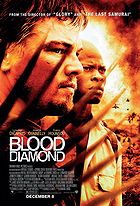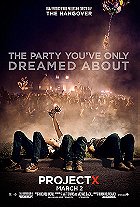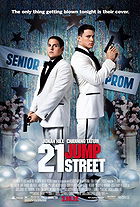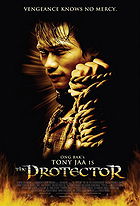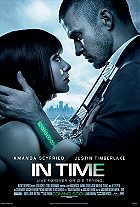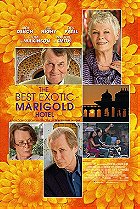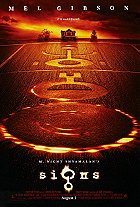With Harry Potter's final instalment having come and gone, and with the Twilight franchise finally preparing to exeunt with its final entry (at least we fucking hope), The Hunger Games is primed to be the start of the next huge cinematic franchise. It's based on Suzanne Collins' novel of the same name; the first in series of books which are exceptionally popular with teenagers due to the story's focus on young love. The franchise is definitely far sturdier than the insufferable Twilight, yet this first Hunger Games instalment comes packaged with its own array of issues. While the picture will almost certainly satiate pre-established fans (who can miraculously keep a straight face when they read such names as Katniss, Haymitch and Peeta), The Hunger Games is merely a decent movie which had the potential to be great.

Set in a post-apocalyptic future, the story takes place in the nation of Panem which is divided into 12 districts of industry. Each year, an event called The Hunger Games takes place, wherein a male and female teenager are randomly selected from each district to be carted away to the Capitol for a week of intense media exposure and training...before they are set loose and forced to kill each other for the nation's entertainment. 24 contestants enter, and there can only be one victor. In District 12, Katniss Everdeen (Lawrence) volunteers to compete in the games to keep her little sister (Shields) out of harm's way. Along with her district's male contestant Peeta (Hutcherson), Katniss heads off to the Capitol under the care of mentor Haymitch (Harrelson) and stylist Cinna (Kravitz) who see the young woman as a potential winner due to her superb hunting skills, knowledge of nature and sheer determination. As the slaughtering begins, Katniss finds herself battling tough odds to stay alive as she tussles with sensitive feelings for Peeta.
The entire first hour of The Hunger Games is dedicated to build up; it patiently develops the characters and delves into their problems while establishing this dystopian world and gleefully satirising global media. It's a promising beginning, but unfortunately the titular games fail to live up to this level of excellence. The games are supposed to be concerned with not only surviving against opponents but also battling the harsh elements and struggling for food and water. Unfortunately, the latter components are almost entirely ignored. The characters should be malnourished with cracked lips and pale skin, yet they always look 100% healthy. It lowers the stakes and thus weakens tension, stripping the film of gritty overtones which could have catapulted it to greatness.

Furthermore, even with a hefty 140-minute runtime, at times the script fails to adequately explain itself. For instance, according to the books, Panem is the state of post-war North America, yet the movie never reveals this. As a result, one may erroneously assume that it's part of an alternate country or even another planet entirely. Not to mention, the film never deals with what happens to fallen players. Hovercrafts collected bodies in the book, but the movie entirely omits this detail even though the hovercrafts are actually established in an early scene. Worse, the game's technicians unleash holograms of killer dogs and fireballs that are apparently lethal despite being hologrammatic, and there's no explanation about how they work. The script is quite a mess indeed, although the dialogue is admittedly well-written. And no, the "read the book, it'll make more sense" argument does not apply. That's bullshit. A movie should not require you to do extra homework; it should exist as its own entity, or else it has failed.
To the credit of director Gary Ross, the tone is spot-on; the material was treated with the gravity and seriousness that it needed. And despite ignoring the effects of malnutrition, The Hunger Games is skilfully grounded, eschewing excessive CGI and never going too over-the-top during the action beats (some of which are magnificent). However, the cinematography is unforgivably bad. On top of the camera always shaking for no rhyme or reason to a headache-inducing extent, framing is often slipshod, and the filmmakers consistently violate the 180 degree rule with jarring consequences. Whenever an action scene or a fight takes place, director Ross gives over to spastic camerawork that's meant to instil excitement but is more likely to make you dizzy. Rarely do action films have set-pieces so badly shot and edited that it's impossible to tell who's fighting who, who's winning, and even what sex the assailants are. It seems that this style was employed to avoid capturing graphic violence to secure a PG-13 rating, but simple cutaways are more than sufficient for this task. (Ironically, the shaking camera will make you more nauseous than any amount of violence could.)

If nothing else, the acting in The Hunger Games must be commended. As Katniss, Jennifer Lawrence is pitch-perfect. Katniss is often described as the "anti-Bella Swan" due to how strong and independent she is, and the actress was up to the task of portraying this character for the screen. Lawrence (who was nominated for an Oscar for Winter's Bone) nailed the emotional and dramatic requirements of the role, and she possesses a certain charm and beauty which make her believable as a love interest. Alongside her is Josh Hutcherson as Peeta, and he displays more skill as an actor here than any of the Twilight cast members. It's the supporting cast who steal the show, though. Woody Harrelson is superb fun as mentor Haymitch, while a plucky Elizabeth Banks shows up in bright-coloured wigs and garish make-up as District 12's lively chaperone. Also noteworthy is the immensely likeable Lenny Kravitz, and a scenery-chewing Stanley Tucci who plays the falsely sympathetic host of the Hunger Games telecast. In a smaller role is young Australian Liam Hemsworth, who's pretty forgettable as he has barely 15 minutes of screen-time.
Underneath the violence and romance, The Hunger Games possesses a hint of social commentary; it explores the ridiculous nature of reality television and comments on the exploitation of humans for the sake of entertainment. It additionally comments on the notion of a totalitarian government who use this televised slaughter of innocent kids to silently keep the common people in their place. Then again, such material has already been explored in far better pictures like The Running Man and Battle Royale, thus The Hunger Games really doesn't have anything new to say except that its predecessors were spot-on in their visions of the future. At the end of the day, The Hunger Games boils down to strong acting, reasonable screenwriting and handsome production values that are let down by shoddy camerawork. Plus, the emerging love triangle has Twilight written all over it. Do we have another "Team Edward/Team Jacob" situation on our hands? Dear God...
6.2/10
 Login
Login
 Home
Home 183 Lists
183 Lists 1670 Reviews
1670 Reviews Collections
Collections
 0 comments,
0 comments, 